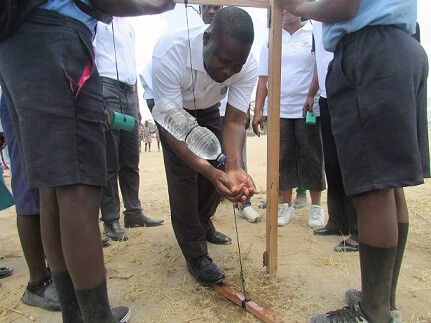
The K2 billion Deliver Life Project to improve maternal and newborn health through better access to water sanitation and hygiene (WASH) has been launched in Kasungu with funding from the United Kingdom (UK) Government and WaterAid UK.
Launched under the theme “Deliver WASH: Deliver Life for Mothers and New Born Babies” the project is to be implemented by WaterAid Malawi and will benefit 24,000 people in Kasungu, Nkhotakota, and Machinga districts.

It will address the poor status of water and sanitation in health centres, which leads to increased home deliveries and the risk of complications or even death among pregnant women. The project will also improve the conditions and safety in health facilities, especially during pregnancy and child birth.
The project recognises the importance of preventive health and improving health care in facilities and communities by taking simple steps that are known to be effective in preventing disease, such as handwashing and safe disposal of waste.
Head of Office for DFID in Malawi, Philip Smith, said Malawi has achieved notable successes in reducing maternal and child mortality but more needs to be done.
“I am delighted that the UK is able to provide MK2bn to support the provision of better health for mothers and their babies through preventative health care in facilities and communities,’’ he said
On her part, Country Director for WaterAid Mercy Masoo said a lot of women do not enjoy the comfort that comes with taking a bath with clean water in a dignified shelter because most maternity wards in Malawi do not have running water.
“This situation forces women to use dirty water and unsanitary places to clean themselves and their babies after birth. This puts mothers, new born babies and health care workers at risk of infection. We hope that this project increases water sanitation and hygiene in all health care facilities in Malawi to ensure that mothers and newborns in Malawi have access to quality health care at the time of delivery,” she said.
Malawi has an exceptionally high maternal mortality ratio (MMR) at 675 deaths per 100,000 live births and infant mortality ratio (IMR) of 79 deaths per 100,000 live births. On average 10 women die every day in childbirth.
Studies show that lack of safe water, poor sanitation and hygiene are some of the major contributors to maternal and neonatal morbidity and mortality. In rural Malawi, about 25 percent of women often give birth at home where access to safe water sources remains a challenge.















Ok
Mukandi gaila ndiyamba kusamba mmanja koma ngati musaganizile munfune osamba yo
manja anu asatalike komanso musachulutse nzeru pandalamazo, tikukuwonani mwayamba kale masamu opusa
will definetely ease up some miseries in healthy sector.bt we hav to use de fund wisely